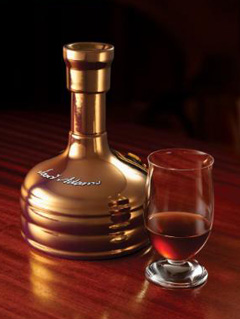Alaskan Brewing issued a press release Wednesday to make it clear the Juneau company will remain independent.
“Despite claims in a July 6 special edition of the Craft Brew News (CBN) that an acquisition deal was being discussed between North American Breweries (NAB) and Alaskan, the brewery unequivocally assures its many loyal customers that Alaskan is not in negotiations, nor do they plan to enter into negotiations with NAB or any other entity,” the press release began. Craft Brew News is an e-letter published by Beer Marketer’s Insights.
“We have no earthly clue where this rumor came from,” Alaskan co-founder Marcy Larson said for the release. “At first we thought it was a joke, that maybe someone had hacked into the CBN.”
The report pointed out that Alaskan sales recently have grown at a slower rate than many other craft breweries. Alaskan leadership explained that was a result of conscious decisions.
“We have not engaged in the price wars or rapid expansion of other craft brewers and we have remained profitable,” co-founder Geoff Larson said. “Over the last ten years, the price of oil, a cup of coffee and nearly everything else has gone up. Even the price of mass-produced beer has gone up, yet craft beer pricing remains at levels lower than those of a decade ago. In 2010, we chose a sustainable pricing strategy over the volume chase and are happy with where we ended up. We are proud to say that our growth has allowed us to issue profit sharing to our employees and investors for the last 15 years running and we are investing in state of the art brewing technology to help us remain a sustainable, profitable and independent brewery in Alaska for years to come.”
The company also announced that as part of its celebratioin of 25 years of operation the brewery will release a limited-edition Russian Imperial Stout brewed with alder-smoked malt, birch syrup and fireweed honey from Alaska. Named for the local mining history and the unique challenges of brewing award-winning craft beer from a remote Alaska town, Alaskan Perseverance Ale will be available in September.

 The Wisconsin Brewers Guild is asking state residents to join others in sending a message to Governor Walker to veto budget language related to microbreweries. The language in question, known as Motion 414, would take away small brewers’ abilities to distribute each other’s beers and own and operate their own taverns.
The Wisconsin Brewers Guild is asking state residents to join others in sending a message to Governor Walker to veto budget language related to microbreweries. The language in question, known as Motion 414, would take away small brewers’ abilities to distribute each other’s beers and own and operate their own taverns. It is brewed in small batches, blended, and aged in the Barrel Room at the Samuel Adams Boston Brewery. After it was first released in 2002, it earned the title of world’s “strongest beer commercially available” in the Guinness Book of World Records. At the time it was 24% abv. Other brewers, using distillation in the production process, have released stronger beers since, while Utopias (which is released only in odd-numbered years) climbed to 27% with the 2009 release.
It is brewed in small batches, blended, and aged in the Barrel Room at the Samuel Adams Boston Brewery. After it was first released in 2002, it earned the title of world’s “strongest beer commercially available” in the Guinness Book of World Records. At the time it was 24% abv. Other brewers, using distillation in the production process, have released stronger beers since, while Utopias (which is released only in odd-numbered years) climbed to 27% with the 2009 release.